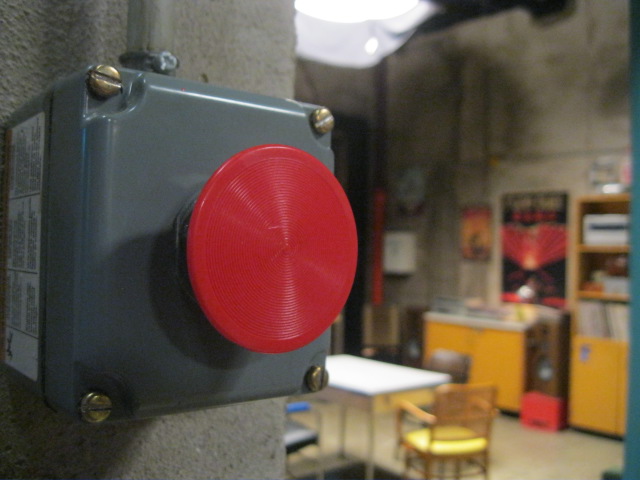 Today, Monday, March 22, is D-day in the fee for carriage debate. The CRTC is expected to issue a statement this afternoon indicating its decision on whether it will allow historically free-to-air broadcasters CBC, CTV, Global and Citytv to charge cable and satellite companies a fee to distribute their signals. A media war played out in public through those self-serving “Save Local TV” and “Stop the TV Tax” industry ads is about to come to a head. At stake is how much consumers are willing to pay extra for something they’ve always enjoyed for free, or, if the CRTC decided to not grant the carriage fees, how far the networks are willing to go to carry out their threat to shut down and/or sell off stations if they don’t get their way.
Today, Monday, March 22, is D-day in the fee for carriage debate. The CRTC is expected to issue a statement this afternoon indicating its decision on whether it will allow historically free-to-air broadcasters CBC, CTV, Global and Citytv to charge cable and satellite companies a fee to distribute their signals. A media war played out in public through those self-serving “Save Local TV” and “Stop the TV Tax” industry ads is about to come to a head. At stake is how much consumers are willing to pay extra for something they’ve always enjoyed for free, or, if the CRTC decided to not grant the carriage fees, how far the networks are willing to go to carry out their threat to shut down and/or sell off stations if they don’t get their way.
I’m wading into all of this through a series of CBC syndicated radio interviews taking place early this morning in markets such as Toronto (with Metro Morning host Matt Galloway), Winnipeg, Edmonton and Regina.
The general expectation is that the CRTC, which has turned down the network request two years in a row, will throw conventional broadcasters a bone this time. The recession had a huge impact on the networks, with both local and national ads sales down more than 10% in 2008-2009 according to figures released Friday. All together, the broadcasters lost $116.4 million before interest and taxes in the 2009 broadcast year–the first time ever the networks suffered a loss.
For CTV, which spent gazilions on the Olympics, and Global, which nearly leveraged itself out of existence, this was a bad time for the money tap to run dry. A lot of people lost their job and some local stations were either sold or shut down. The networks say more carnage is coming if their fee demands are not met.
The CRTC probably wants to avoid the nasty hostage demands that have been taking place in the U.S. There this isn’t a political matter, just a business war, with networks like Fox, ABC and CBS telling the cable and satellite providers that if they don’t pony up with direct carriage fees by midnight, nobody sees The Oscars or the Super Bowl or American Idol ever again, see? Some lucky Americans, for example, were spared Steve Martin and Alec Baldwin’s sloppy Oscar monologue when a regional U.S. cable deal wasn’t hammered out until 20 minutes or so after the show had already started.
Withholding shows is a little trickier in Canada. It’s a bit tougher to say we’re gonna take our Desperate Housewives or Survivors and go home when Canadians can just press 18 or 17 on their remotes and watch them on the originating ABC or CBS border station affiliates. The Canadian networks have thought of that and have lobbied for the ability to take down any U.S. signals to properties they own the rights to in Canada. The cable and satellite providers (and most consumers) think that idea is hilarious.
Canadian networks could threaten to withhold Canadian shows but that doesn’t scare anybody if all you produce is news and reruns of The Guard. Years of Canadian content neglect and reckless U.S. content spending has come back to bite these guys in the wallet. The latest figures show that the Canadian networks spent $846.3 million on foreign programming in 2009, a record amount, up from the $775.2 million spent in 2008. This money was spent in the teeth of a tough recession, by networks already complaining about broken business models and the dire need for carriage fee bailouts. It’s like some rich kid borrowed dads Caddy, drove it down to the States, had it all tricked out at American Chopper for $50 grand, and now wants daddy to foot the bill.
Eventually daddy has to say no. The CRTC’s daddy, Konrad von Finckenstein, said no two years in a row now but the layoffs and lobbying has his attention this time.
Most observers expect the CRTC to throw much of this back at the networks and cable providers today, asking them to determine a value for network carriage, something that will limit the impact it could all have on the consumer. That’s a good plan because the consumer is pretty damn fed up with rising cable bills as it is and may not stand for another increase for something they currently get for nothing.
There are alternatives to cable. Two guys on my hockey team just went out and bought antennas and enjoy 17-20 channels free over the air, just like in the old days. Signals from Buffalo, too, strong, high def, digital signals. Do they miss not getting OLN, W or MEN TV? That would be no.
Ask any college or even high school kid and they can hook you up with all the TV you can handle off the Internet. Even an old fashioned broadcast show like Good Morning America was telling their viewers over a year ago in a consumer reports segment that you don’t have to pay both a cable bill and an Internet bill if you want to see your favourite TV shows. If ABC/Disney is getting the word out, they change it is a comin‘.
The folks at the CRTC seem to get that we could be on the bubble of a consumer backlash on this one and that simply turning on a cable money tap isn’t the be-all and end-all solution the networks say it is. If the CRTC does grant in principle the idea of a carriage fee to broadcasters, hopefully it will come with strings attached. You can’t give money to people who can’t help themselves from giving it all away in Hollywood. Place a restriction on how much can be spent on acquiring rights to foreign programming. If you say you want to save local TV, save local TV, and spend every new dime on creating local TV, and not just the same old cheap-ass red carpet clones.
The CRTC is expected to announce its decision around 4 p.m. ET. We’ll have it here ASAP (and won’t charge a carriage fee).

Next Post






1 Comment
may the blessing be always with you!! ........................................